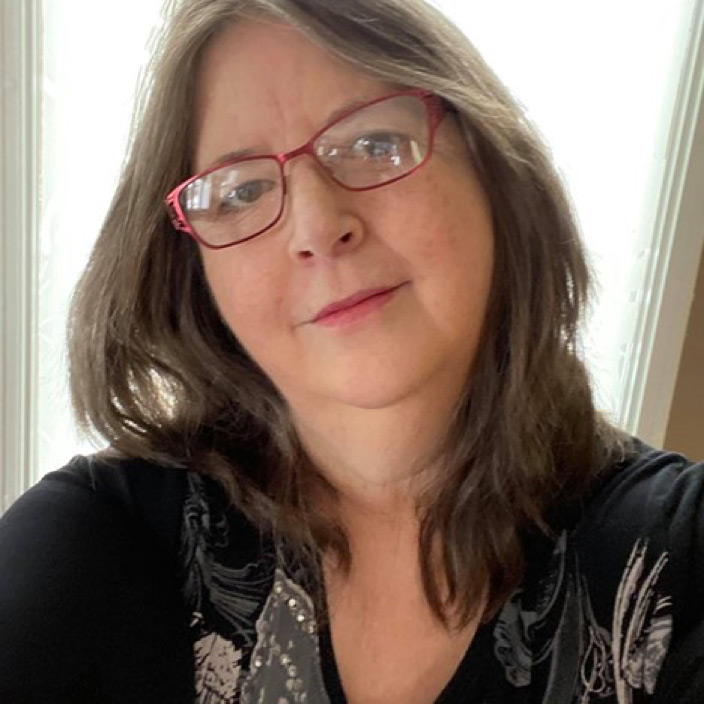Sandra Holdsworth: Lessons learned from 25 years post-liver transplant and how to cope with PSC
December 1, 2021
Kristian Stephens, a volunteer writer for PSC Partners Canada, interviewed Sandra Holdsworth about living with PSC and coping strategies, as well as giving back to the transplant community.
Can you share your experiences with PSC and having a liver transplant?
My transplant journey with primary sclerosing cholangitis (PSC) started in 1992. After several years of not feeling well with stomach aches and low energy levels, a new doctor ran every blood test that she thought might lead to a diagnosis. Those results came back showing high liver numbers. I was then referred to the Toronto General Hospital Liver Disease Clinic in 1995. After several tests and some investigation, in May 1995 I was diagnosed with PSC. I was told that by the time I was 40 or 50 I would need a liver transplant. At the time I was 28 and thought that’s a long way off, and none of us really know when we’re going to die.
In addition to being diagnosed with this liver disease, I was also told I had inflammatory bowel disease (IBD) and that it was either Crohn’s or Colitis. So, I was 28 with a liver disease which most people thought would have been caused by alcohol or drug use. Add in my problems with my bowels, and I thought to myself what a conversationalist I would be at events & parties!
In August 1996, I was put on the waiting list for a liver transplant. However, by December 1996, my situation had become more critical. I was in survival mode and trying to stay healthy enough to be ready for a call that would say they had a liver for me. In February 1997, I received that special call, to receive my liver transplant, thanks to a person who made the decision to donate and their family who honoured their loved one’s wishes. While in the ICU, my jaundice disappeared, and I felt better than I had in a long time. Three months after the surgery I was starting to return to my normalcy. I then returned to work six months after the surgery.
After I had recovered from my liver transplant, I wanted to do two things. I wanted to help “give back” by promoting Organ & Tissue Donation awareness so that more people like me could have a second chance at life. I did this by volunteering with the M.O.R.E. Program (now Trillium Gift of Life Network in Ontario, Canada) as well as with the Canadian Transplant Association. I also wanted to help mentor people, so they knew what to expect after a transplant and have someone to talk to about their feelings. I felt it was important to provide people with someone they could ask questions and someone who had already been through the process. I then joined the liver mentor program at Toronto General Hospital. Even though this program is no longer active, I still mentor people today who are referred to me.
I’m looking forward to celebrating my 25th Liverversary in February 2022. I also reflect about the things I’ve been able to do, like attend Canadian, American and World Transplant Games and the many family and friends celebrations & events I’ve attended over the years. I’m also fortunate to have met so many other fellow recipients, living donors and donor family members who make up the transplant community, many who I consider great friends and family. I still give back today helping in research with the Canadian Donation Transplant Research Program and the Organ Tissue Donation Transplant Collaboration led by Health Canada as well as other research & healthcare related initiatives.
How did you manage the fatigue from the PSC?
I had lots of fatigue and ended up sleeping all day long. This meant then that I could not sleep during the night as my sleep pattern had changed which I later learned was normal. I also learned to listen to my body and sleep when I felt tired.
What has changed regarding information and support during your journey with PSC?
So much has changed since my transplant in 1997. It wasn’t that difficult to find information then on IBD as there was the Crohn’s and Colitis Foundation of Canada and many doctors who specialized in this field. But for PSC, which was very rare at the time of my diagnosis, I first reached out to the Canadian Liver Foundation. During this time, there was no easily accessed information on it other than a research page and one article from the US speaking about it. Also at that time, I had not heard of children having PSC.
Also living donation had not officially started at Toronto General Hospital, it started three years later in 2000. This breakthrough really increased the number of recipients. New medications have been developed, as well as innovation and research leading to improved transplant processes and protocols.

What would you tell patients that are waiting for a liver transplant?
- Take each day one day at a time.
- Surround yourself with a good support system.
- Listen to your body.
- Please take care of your nutrition, mental and physical health.
- Use your transplant team for medical information.


















